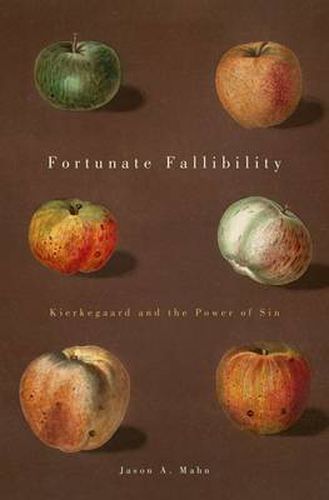Readings Newsletter
Become a Readings Member to make your shopping experience even easier.
Sign in or sign up for free!
You’re not far away from qualifying for FREE standard shipping within Australia
You’ve qualified for FREE standard shipping within Australia
The cart is loading…






For more than 1,500 years, the claim that Adam’s Fall might be considered ‘fortunate’ has been Christianity’s most controversial and difficult idea. While keepers of the Easter vigil in the fifth century (and later John Milton) praised sin only as a backhanded witness to the ineffability of redemption, modern speculative theodicy came to understand all evil as comprehensible, historically productive, and therefore fortunate, while the romantic poets credited transgression with bolstering individual creativity and spirit.
Jason Mahn’s compelling study examines Kierkegaard’s “para/orthodixical” language of human fallibility and Christian sin. Mahn breaks down and reconstructs the concept of the fortunate Fall in Western thought, in context of Kierkegaard’s later writings, examining Kierkegaard’s blunt critique of Idealism’s justification of evil, as well as his playful deconstruction of romantic celebrations of sin. Mahn also argues, though, that Kierkegaard resists the moralization of evil, preferring to consider temptation and sin as determinative dimensions of religious existence. In relation to the assumed “innocence” of Christendom’s cultured Christians, the self-conscious sinner might be the better religious witness.
Although Mahn shows how Kierkegaard finally replaces actual sin with human fragility, temptation, and the possibility of spiritual offense as that which “happily” shapes religious faith, he cogently argues that Kierkegaard’s understanding of “fortunate fallibility” is at least as rhetorically compelling and theologically operative as talk of a fortunate Fall. Mahn’s insights into Kierkegaard’s playful maneuvers encourages Christian theologians can speak of sin more particularly and peculiarly than in the typical discourses of church and culture.
$9.00 standard shipping within Australia
FREE standard shipping within Australia for orders over $100.00
Express & International shipping calculated at checkout
For more than 1,500 years, the claim that Adam’s Fall might be considered ‘fortunate’ has been Christianity’s most controversial and difficult idea. While keepers of the Easter vigil in the fifth century (and later John Milton) praised sin only as a backhanded witness to the ineffability of redemption, modern speculative theodicy came to understand all evil as comprehensible, historically productive, and therefore fortunate, while the romantic poets credited transgression with bolstering individual creativity and spirit.
Jason Mahn’s compelling study examines Kierkegaard’s “para/orthodixical” language of human fallibility and Christian sin. Mahn breaks down and reconstructs the concept of the fortunate Fall in Western thought, in context of Kierkegaard’s later writings, examining Kierkegaard’s blunt critique of Idealism’s justification of evil, as well as his playful deconstruction of romantic celebrations of sin. Mahn also argues, though, that Kierkegaard resists the moralization of evil, preferring to consider temptation and sin as determinative dimensions of religious existence. In relation to the assumed “innocence” of Christendom’s cultured Christians, the self-conscious sinner might be the better religious witness.
Although Mahn shows how Kierkegaard finally replaces actual sin with human fragility, temptation, and the possibility of spiritual offense as that which “happily” shapes religious faith, he cogently argues that Kierkegaard’s understanding of “fortunate fallibility” is at least as rhetorically compelling and theologically operative as talk of a fortunate Fall. Mahn’s insights into Kierkegaard’s playful maneuvers encourages Christian theologians can speak of sin more particularly and peculiarly than in the typical discourses of church and culture.